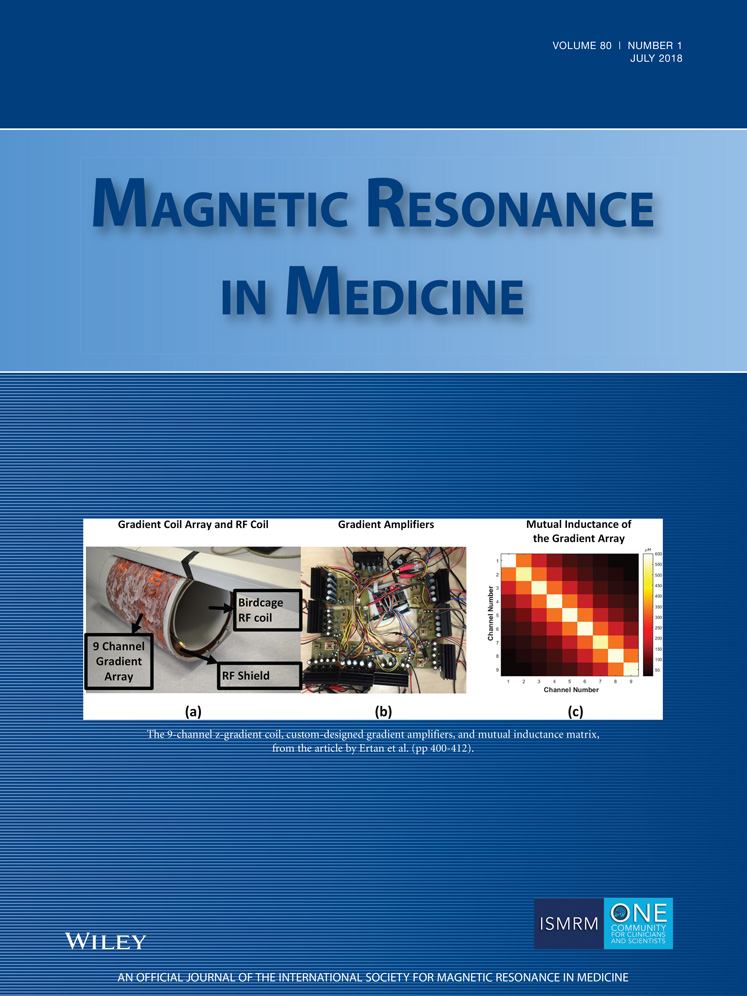Sensitivity enhancement for detection of hyperpolarized 13C MRI probes with 1H spin coupling introduced by enzymatic transformation in vivo
Abstract
Purpose
Although 1H spin coupling is generally avoided in probes for hyperpolarized (HP) 13C MRI, enzymatic transformations of biological interest can introduce large 13C-1H couplings in vivo. The purpose of this study was to develop and investigate the application of 1H decoupling for enhancing the sensitivity for detection of affected HP 13C metabolic products.
Methods
A standalone 1H decoupler system and custom concentric 13C/1H paddle coil setup were integrated with a clinical 3T MRI scanner for in vivo 13C MR studies using HP [2-13C]dihydroxyacetone, a novel sensor of hepatic energy status. Major 13C-1H coupling 1JCH = ∼150 Hz) is introduced after adenosine triphosphate–dependent enzymatic transformation of HP [2-13C]dihydroxyacetone to [2-13C]glycerol-3-phosphate in vivo. Application of WALTZ-16 1H decoupling for elimination of large 13C-1H couplings was first tested in thermally polarized glycerol phantoms and then for in vivo HP MR studies in three rats, scanned both with and without decoupling.
Results
As configured, 1H-decoupled 13C MR of thermally polarized glycerol and the HP metabolic product [2-13C]glycerol-3-phosphate was achieved at forward power of approximately 15 W. High-quality 3-s dynamic in vivo HP 13C MR scans were acquired with decoupling duty cycle of 5%. Application of 1H decoupling resulted in sensitivity enhancement of 1.7-fold for detection of metabolic conversion of [2-13C]dihydroxyacetone to HP [2-13C]glycerol-3-phosphate in vivo.
Conclusions
Application of 1H decoupling provides significant sensitivity enhancement for detection of HP 13C metabolic products with large 1H spin couplings, and is therefore expected to be useful for preclinical and potentially clinical HP 13C MR studies. Magn Reson Med 80:36–41, 2018. © 2017 International Society for Magnetic Resonance in Medicine.




